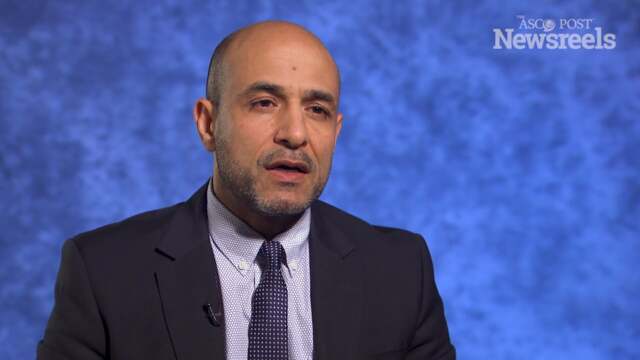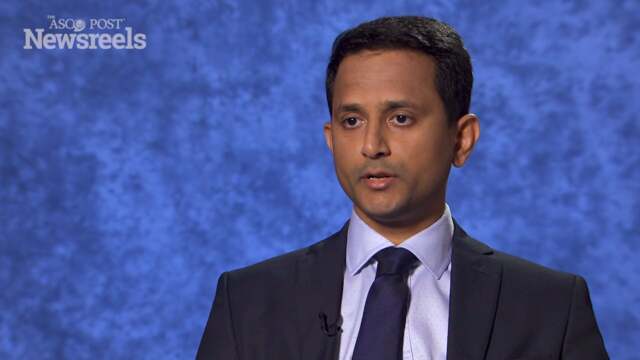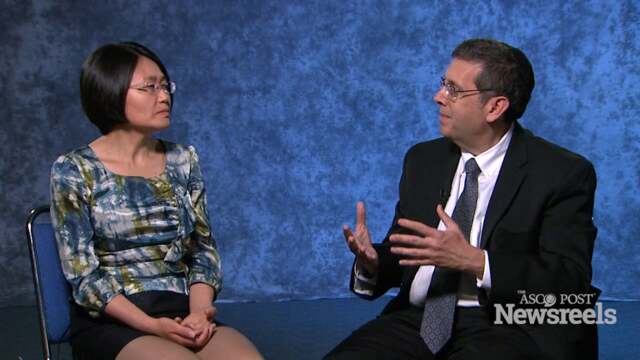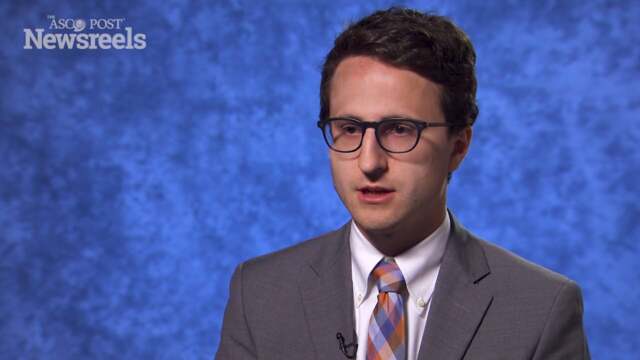Christopher R. Kelsey, MD, on DLBCL: Study Results on Consolidation Radiotherapy
2017 ASTRO Annual Meeting
Christopher R. Kelsey, MD, of Duke University Medical Center, discusses reducing the radiation dose from 30 Gy to 20 Gy for patients with diffuse large B-cell lymphoma. Phase II findings show this approach may be effective in light of improved systemic treatment and better chemotherapy response assessment (Presentation 298).
Tamim Niazi, MDCM, of McGill University, discusses phase III study findings on hypofractionated, dose-escalation radiation therapy for high-risk adenocarcinoma of the prostate (Abstract 281).
Shrinivas Rathod, MD, of the University of Manitoba, discusses phase III study results on optimization of treatment of advanced non–small cell lung cancer using radiation therapy and chemotherapy (Abstract 223).
Shulian Wang, MD, of the National Cancer Center in Beijing, and Benjamin Movsas, MD, of the Henry Ford Health System, discuss study results on the use of hypofractionated radiation therapy after mastectomy for the treatment of high-risk breast cancer (Abstract PL01).
Juanita Crook, MD, of the University of British Columbia, discusses late toxicity findings on transperineal ultrasound–guided brachytherapy for locally recurrent prostate cancer after external-beam radiation therapy (Abstract 1).
James E. Bates, MD, of the University of Florida, discusses a volumetric dose-effect analysis of late cardiotoxicity, results from the Childhood Cancer Survivor Study (Abstract 4).





